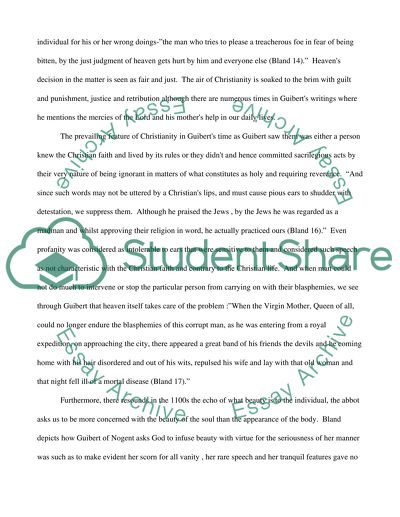Cite this document
(“Discussion on Guibert of Nogent Essay Example | Topics and Well Written Essays - 2500 words”, n.d.)
Discussion on Guibert of Nogent Essay Example | Topics and Well Written Essays - 2500 words. Retrieved from https://studentshare.org/miscellaneous/1500928-discussion-on-guibert-of-nogent
Discussion on Guibert of Nogent Essay Example | Topics and Well Written Essays - 2500 words. Retrieved from https://studentshare.org/miscellaneous/1500928-discussion-on-guibert-of-nogent
(Discussion on Guibert of Nogent Essay Example | Topics and Well Written Essays - 2500 Words)
Discussion on Guibert of Nogent Essay Example | Topics and Well Written Essays - 2500 Words. https://studentshare.org/miscellaneous/1500928-discussion-on-guibert-of-nogent.
Discussion on Guibert of Nogent Essay Example | Topics and Well Written Essays - 2500 Words. https://studentshare.org/miscellaneous/1500928-discussion-on-guibert-of-nogent.
“Discussion on Guibert of Nogent Essay Example | Topics and Well Written Essays - 2500 Words”, n.d. https://studentshare.org/miscellaneous/1500928-discussion-on-guibert-of-nogent.


